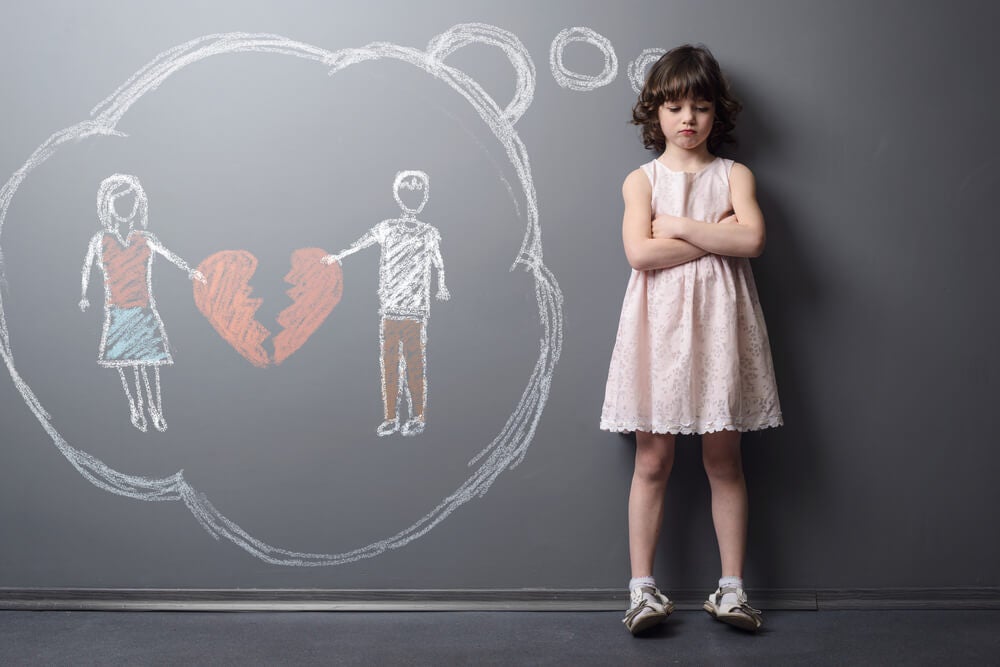Many parents believe that separation only affects the partner; However, this is not the case when there are children involved. Have you ever thought about how children react to divorce?
Even if you don’t pay attention to them, the little ones suffer divorces, disputes, misunderstandings and everything that can be generated during the separation, having divorced parents can be a situation that many children cannot handle on their own. The thing is, they have a lot of doubts and they need someone, with patience and understanding, to clarify them.
- It is no coincidence that many children whose parents are divorced have problems in school.
- Start using alcohol and drugs from a very young time.
- Or stay away from their families.
- Children suffer greatly when the first relationship they have as a reference fails.
Approximately 60% of children of divorced parents require some form of psychological treatment.
A 6-year-old does not have the same reaction as a 2-year-old at the time of separation, circumstances change and the maturity level is also very different, so depending on the child’s age, the child will be more or less affected by having separate parents. A fact to consider, because everything that affects her in childhood will mark her for the rest of her life.
A child under the age of 2 doesn’t understand what divorce is, let alone the consequences. But despite this, he realizes that something is wrong or that at least that has changed, that there are variations in his parents’ emotional state and whether they are out or not. This absence often leads to feelings of abandonment due to the harsh climate of its surroundings. If the child does not feel safe, this can have serious psychological consequences.
A child between 2 and 3 years old is at a very delicate stage of life, is in full development, if the separation has a significant impact on the child, the consequence can be a significant delay in development: delay in the acquisition of certain psychomotor skills, difficulties in learning speech and problems with the control of sphincters. A child this age doesn’t fully understand everything that involves a divorce, he just knows he wants his parents to stay together, which becomes a dream for him.
A child between 3 and 5 years old already knows, or at least knows what divorce is and what it means, so he will ask many questions The problem arises when, in his eagerness to find answers, he hears lies he does not know. This will increase your sense that the world has become a very dangerous place. Fears arise, such as the fear of being alone or one of your parents abandoning you. So you can be possessive with one or both parents.
Children may react with anger, sadness, or irritation to the possibility of divorce, demonstrating that they too are affected.
A child between the age of 6 and 12 is much more empathetic and can even put themselves in the shoes of his parents, although it is not uncommon for them to continue to feed the illusion of being together. It can happen to an older person, why not the children?
But look, because a disappointment in this regard can have a significant emotional impact, much more important than the separation itself, it is not the same to think that a situation is ephemeral as to think of it as permanent: perhaps the adaptations to be made are the same, but the emotional impact will not be the same.
A child this age, no matter how mature, is not yet fully emotionally developed. There are processes she won’t understand. For example, why do two people who love each other no longer want to be together?This sense of living in a world of complex rules that you cannot comprehend can leave you in awe.
In this age group, can the child develop two?Adaptation strategies? (among other things): can the child unlearn?emotional skills that you have already developed or that can be strong while masking deep pain and fear; in the second case, he learns not to express his feelings, which will affect him in his adult life.
As we have seen, the way in which children respond to divorce can be different depending on the age and the individual, so even though we are in great suffering, we need to speak with our children and clarify their doubts and concerns. what happens and what changes will occur in your environment; We will always love them and they can count on us.
On the other hand, a child may blame himself for the separation from his parents. You may think that your behavior caused your parents to separate. Parents should talk to her and make her understand that she is not responsible, much less guilty of whatever it is. it’s happening.
We need to be clear with the kids. There is no point in hiding or hiding the situation because you think they will not understand what happened, children understand more than we think (especially parents) and need to know what happened, so it is necessary to be clear, direct, does not lie and adjusts speech to your age. The most important thing now is that you feel loved.
Many divorced parents try to pit the child against the father, which is extremely painful and harmful.
Many couples focus on themselves, neglecting the emotions their children experience, this makes them feel abandoned and un loved, however, we cannot help but talk to them about something so important, because even if we do not see, a wound can form and, if it is not healed, it will develop over time.
For this reason, it is essential to know the reaction of children to divorce and to provide them with the right attention at this delicate time in their lives.

